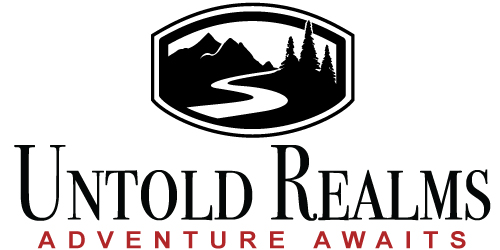Lately I have been reading a lot of articles on the web about OSR, or Old School Revival (or Renaissance). These usually refer to retro-clones of D&D, games that are copies of the original, trying to improve upon them but retaining the "feel" of game or time. While people are usually talking about D&D, the concept still applies to The Fantasy Trip.
What Does OSR Mean, and Why Do It Anyway?
OSR… I understand the concept (or at least I think I do…) Many people are making money producing and selling games that are clones of D&D–either AD&D or the original D&D. The idea is to create a new game, based on the structure of the original, with more modern concepts or rules on top. The important thing is to capture the atmosphere or feel of whatever game or version they are cloning, or the spirit of gaming at that time. All of this with permission through the Open Gaming License.
The reason I get the desire to make these games (aside from money) is that second part. I have a lot of fond memories of playing AD&D (and yes, TFT) back in my formative years. Gaming was new to me back in the early 80s, and it just sparked my imagination. Ever since then I have wanted to feel that joy again–that is why I got back into gaming again anyway. And I’m not the only one.
So What’s the Problem?
OK, so why is that a bad thing? Well, there has been some back and forth on the Interwebs about comments from some of the remaining gaming founders, about what OSR really is, its philosophy and a number of other aspects.
The basic question being debated was whether the people who are part of the OSR spend any real money in the gaming market. The only point I want to make here is that I definitely do. Just look at my DriveThruRPG account! I buy a LOT of things there, for ideas and inspiration, for complete games–in both the fantasy and sci-fi genres.
I can’t believe I’m alone in this, either. There wouldn’t be that many games on the market if people weren’t buying them. And whether people are playing the latest version of D&D or some retro-clone should not really matter. What matters is people are having fun gaming! I think some people are forgetting that.
What Does This Mean for TFT?
So what does that mean for our beloved Fantasy Trip? Maybe not much in new games or adventure modules being produced for TFT, but I really do think there is a lot of benefit in the OSR movement for us. Aside from our own retro-clones in Dark City Games and Heroes & Other Worlds, there is a wealth of ideas and information out there that can be easily incorporated into any TFT campaign. It just takes some open eyes.
(Never mind that GURPS itself can debatably be called a descendent of TFT, or that their Dungeon Fantasy line tries to recapture some of that old spirit from that time!)
My point is that there is a lot of benefit from the OSR for those of us who still play The Fantasy Trip. No matter the game, there are ideas galore–from rules and concepts, to settings, to complete adventures.
We can have fun debating any point of the various games, but we shouldn’t get too worked up about movements, philosophies or even monetary contributions. After all, we are all gamers, and we do this to have fun. Right?
Marko ∞
(Originally published on inthelabyrinth.org, on 9/22/2017.)
